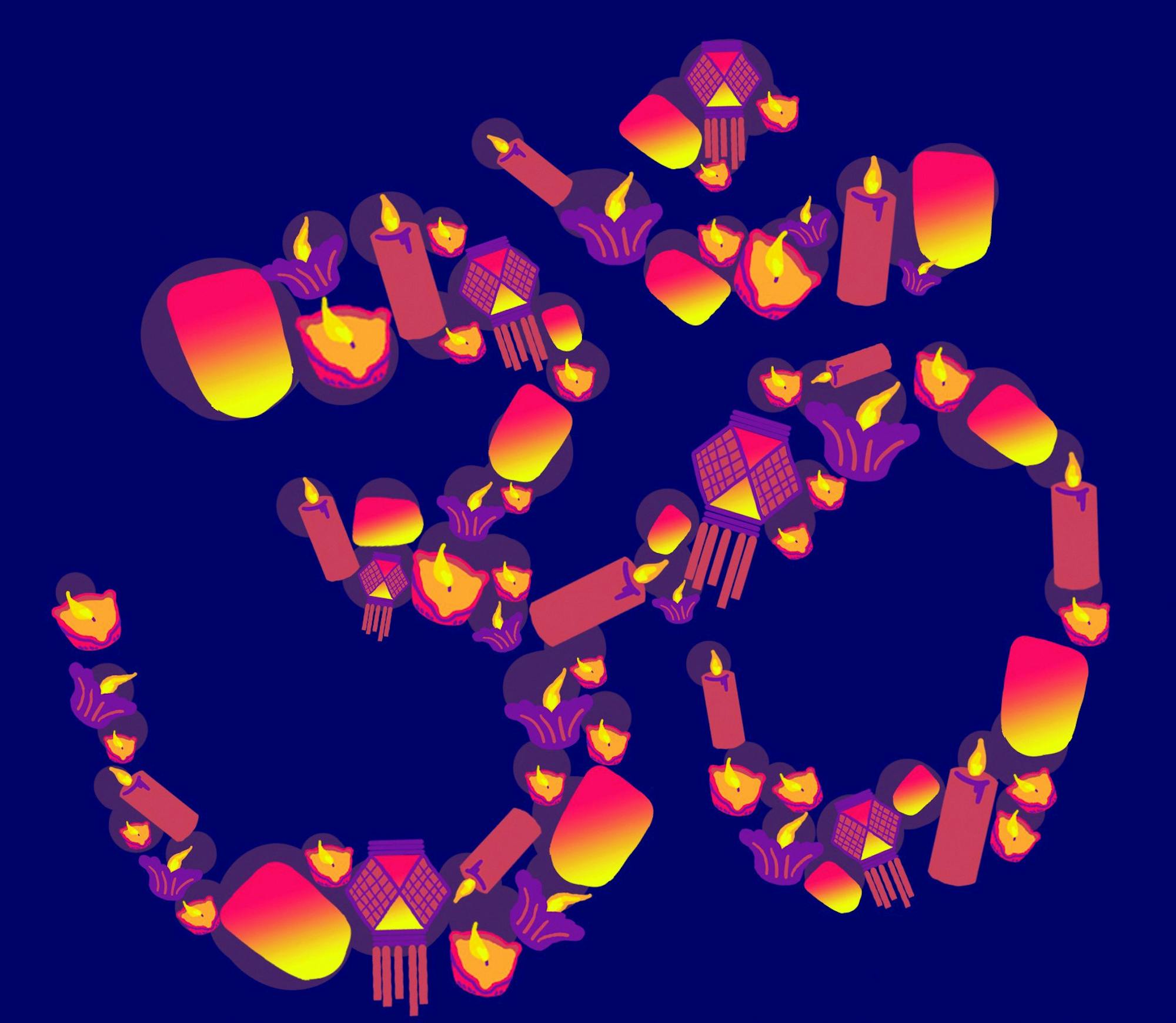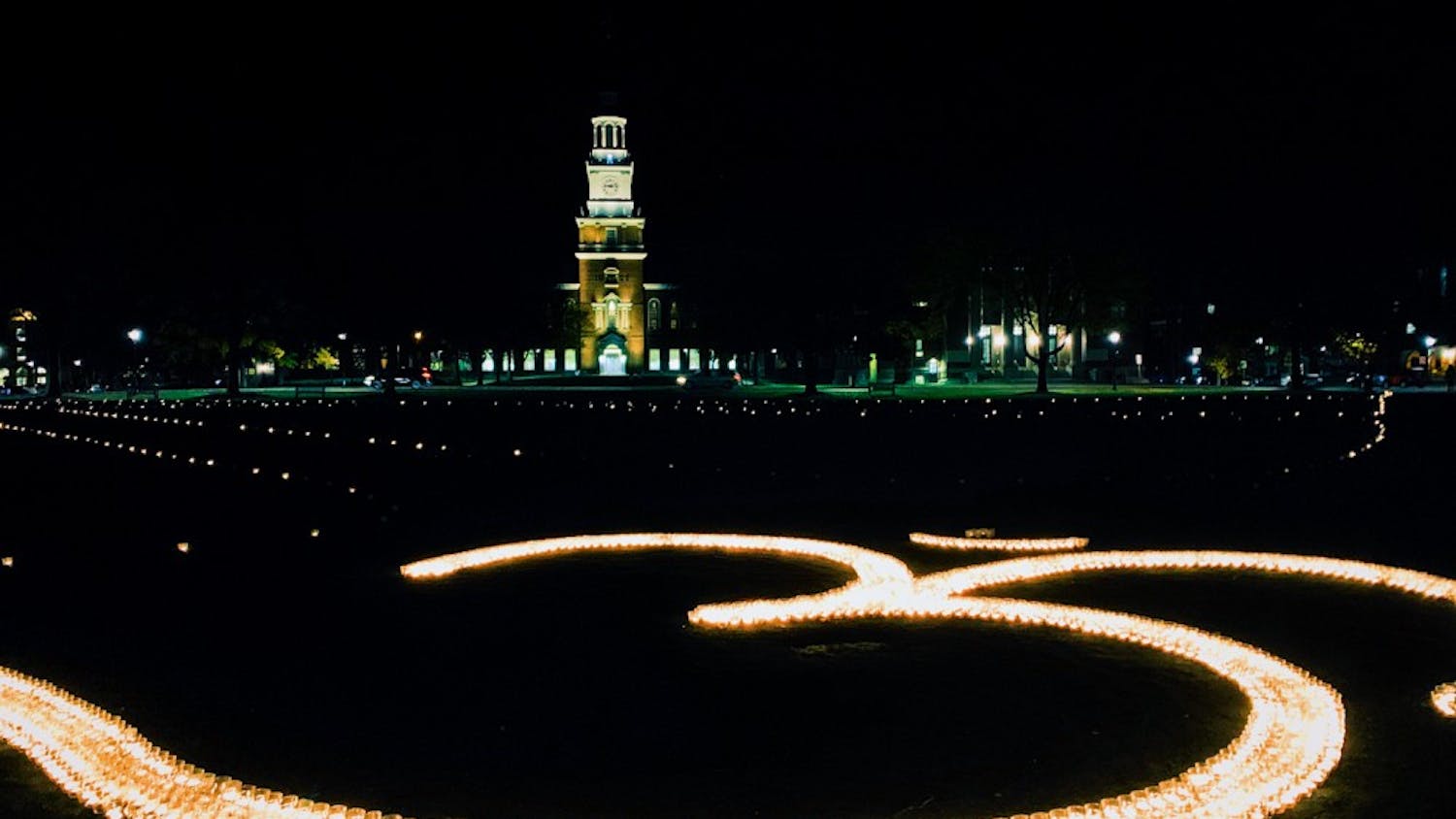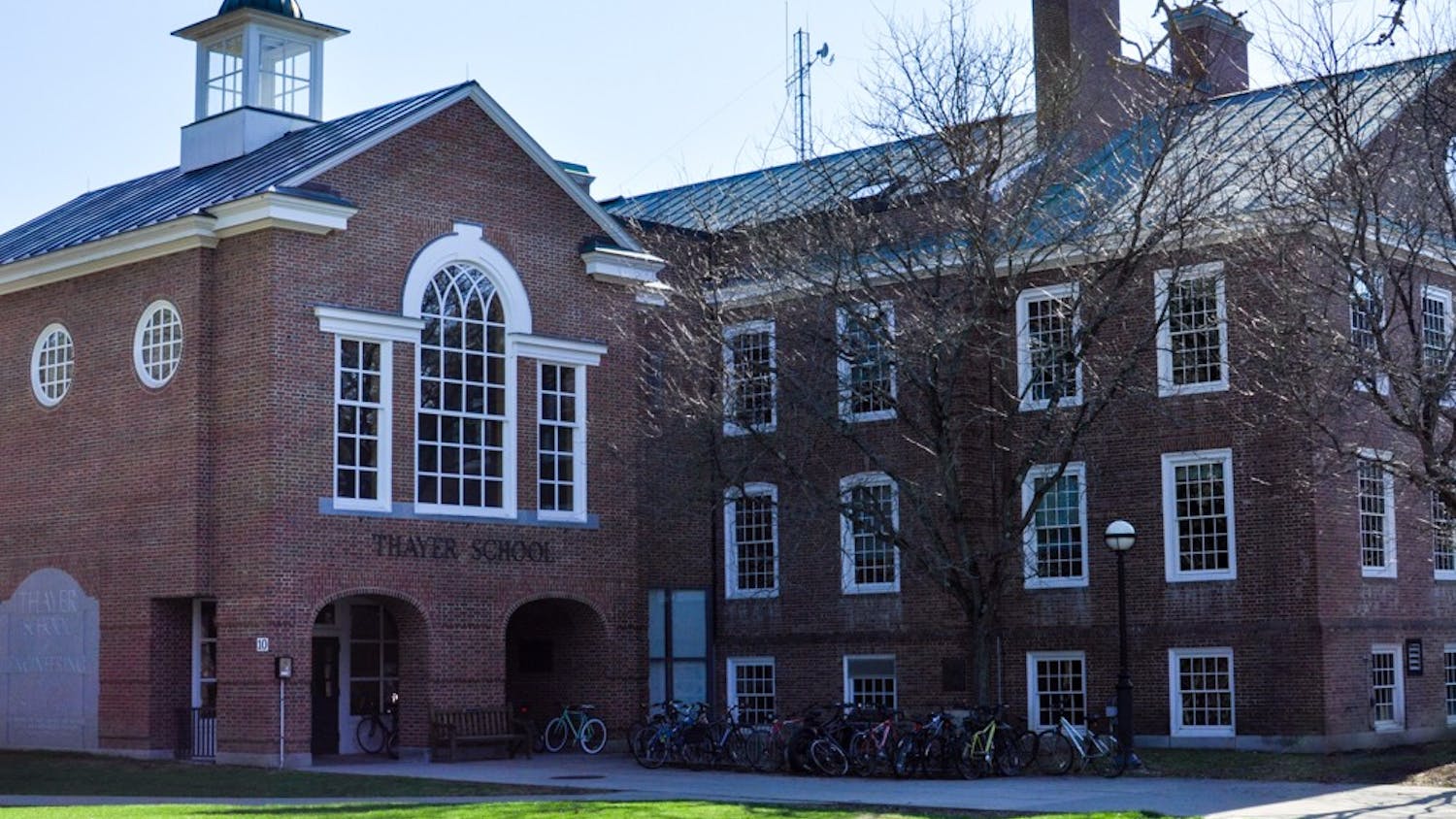Every year between mid-October and mid-November, Hanover community members and student volunteers set up an array of tea lights lining the pathways of the Dartmouth Green, spelling out ‘Ohm’ in Hindi and ‘Shanti,’ the word for peace in Hindu. People gather on the Green to light these lamps just after dusk following the Lakshmi puja, as part of the celebration of the Hindu festival of lights, Diwali. Prasad Jayanti, the chair of the computer science department and faculty advisor of Shanti, an organization that represents the Hindu faith, explained the origins of the festival’s name.
“Diwali is a colloquial corruption of Deepa-awali. ‘Deepa’ means ‘light lamp.’ Awali means ‘a row, a list,’ so ‘deepa’ and ‘awali,’ joined become ‘Deepa-awali,’ so you shouldn’t be surprised if you see a lot of rows of lamps,” Jayanti said.
The lamps have become the most recognizable element of the Hindu festival of lights, both around the world and especially on Dartmouth’s campus. The celebration and the lights bring together the Hanover and Dartmouth communities across cultures.
Divya Kopalle ’21, a Hanover local and member of Shanti, has attended the Diwali celebration at Dartmouth for her entire life, missing only one year. She said that the ceremony is one of Shanti’s largest events. She said that the day starts with a prayer session in Rollins, followed by the lamp lighting on the Green. The final part of the ceremony is a cultural show with singing and a performance by the dance group Raaz.
“That’s a time when there are a lot of community members involved. There are a few Dartmouth students and technically this is put on by the student organization, but the community is the major portion of it ... The community definitely puts a lot of work into this,” Kopalle said.
While primarily families, community members and a few students observing the holiday dominated attendance at the Lakshmi puja, the lighting of the lamps and the cultural show drew in a large crowd of graduate students and undergraduate students in addition to those already celebrating. The crowd progressively grew over the course of the evening to include hundreds of people enjoying the lamps, sparklers, entertainment and food. In Hanover, Diwali has become not just a Hindu celebration but also a Dartmouth tradition.
“It’s cool to see how far it has come and that we’re able to have an event that everyone looks forward to and knows about, not just the Hindu community ... This is one of the biggest things Shanti puts on, so we put a lot of effort into making it known to more than just the Hindu community or just the Dartmouth community but really anyone here in the Upper Valley,” Kopalle said.
Narayana Roa, a member of one of the 30 Hanover families who helped to prepare the dinner, explained that the Hanover community works hard to fund the celebration and keep it completely free to welcome students who may be craving a taste of home. The servers and cooks feed 500 to 600 people and never have leftovers.
“In other places you have to pay an entrance fee of something like $10 to $15, but here in Hanover, it’s free!” Roa said.
Srivamshi Pittala, a graduate student, worked to organize the Diwali celebration for the past six years, attending this year’s celebration as just an attendee.
“I’ve been coming to Diwali every year I’ve been at Dartmouth. In India there is a lot more fervor in terms of household celebrations ... and since I don’t have family here this is how we celebrate. Shanti is something that provides this platform for students from India or elsewhere to still come together and celebrate,” Pittala said.
Two Dartmouth graduate students, Linta Joseph GR’21and Maryam Negahbani GR’21 said they have attended the Diwali celebration each of their past three years at Dartmouth. When asked about their experiences with the Diwali festival, they laughed, saying that that they were the worst people to talk to about Diwali. Joseph, who is from India, was raised Catholic, and Negahbani, who is from Iran, described herself as “atheist to the bone.”
“For me, it’s more a celebration of Indian culture than Hindu religion,” Joseph said.
“I guess because we don’t have a big community from my home, I just like to gather with my friends and celebrate something, so that’s why I got all dressed up and borrowed clothes from my friends,” Negahbani said.
Many Dartmouth students stumble upon the festivities and join in, while others hear about the event from their Hindu friends. The amalgamation of people gathered together to celebrate Diwali with home-cooked food and sparklers exemplified community and joy rooted in Hindu values.
“The motivation of the actions of this diverse set of people across millennia and across the globe is the same. I’ll just very roughly use the word because the word is always approximate — but we are all just searching for happiness,” Janyanti said.
Janyanti continued to explain that Hinduism asserts that every human being can reach that state of happiness through seeking within.
“You think, you observe, you experiment, you can do so many things to improve your understanding to get there, but the main point is there is such a state of happiness that every one of us can aspire to. Labels are not important,” Janyanti said.
The lights on the Green and the group gathered around them displayed a tradition adapted to the inevitable change of life, a journey around the world and a college campus adhering to the values at the core of the celebration.
“All of the desire to come together and celebrate and the effort put into that desire has made this come to be such a big celebration at Dartmouth, and wherever there is that commitment to effort within a community, anything can come to be. Wherever I am, I want to be a part of that,” Negahbani said.
Divya Kopalle is a member of The Dartmouth Senior Staff.




